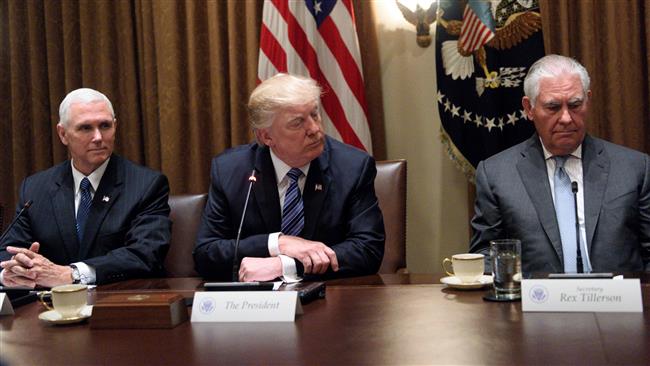
US recertifies Iran’s compliance with nuclear deal

The US President Donald Trump’s administration notified the Congress of
continued Iranian compliance on Monday.
The US administration is bound by US law to notify the Congress of Iran’s
compliance with the deal every 90 days. The Congress would then have to continue
to withhold certain nuclear sanctions against Iran.
The Trump administration has been skeptical of the deal, officially known as the
Joint Comprehensive Plan of Action (JCPOA). Trump has called the JCPOA "a very
bad” deal, and, as a presidential candidate, he had threatened that he would rip
it up.
But he has not done so, partly because his aides have advised him against doing
that. The New York Times reported on Monday that Trump had agreed to recertify
Iranian compliance after an hour-long heated debate with his top aides and after
he received "the consensus recommendation of his national security team.”
The Trump administration notified the Congress of Iran’s compliance for the
first time in April.
Also on Monday, White House Spokesman Sean Spicer said US Secretary of State Rex
Tillerson would make an announcement on the nuclear agreement "very shortly.”
Reuters reported that "new economic sanctions against Iran were being prepared
[by the US] over its ballistic missile program and for contributing to regional
tensions,” citing an unnamed US official.
Trump administration officials have attempted to portray the new sanctions as a
way of confronting Iran in other areas. But the sanctions are generally viewed
as the Trump administration’s way of compensating for its inability so far to
pull out of the JCPOA without too much cost. Washington is under pressure from
the other parties to the deal — notably the Europeans — to stick to the
agreement.
High Representative of the European Union Federica Mogherini (L) and Iran’s
Foreign Minister Mohammad Javad Zarif attend the opening of the Oslo Forum in
Losby Gods, outside Oslo, Norway, June 13, 2017.
"The nuclear deal doesn’t belong to one country, it belongs to the international
community,” said the EU’s High Representative Federica Mogherini last Tuesday.
"We have the responsibility to make sure that this continues to be implemented.”
Under the deal, which took effect in January last year, Iran undertook to put
limits on its nuclear program in exchange for the termination of nuclear-related
sanctions imposed against the Islamic Republic.
The United Nations (UN) and the European Union (EU) have warned that the US
could not unilaterally rescind the multilateral agreement. They regard the deal
as a triumph for diplomacy and a major contributing factor to regional and
international peace and stability.
The US administration has thus only been able to attempt to ratchet up sanctions
pressure in other areas. It has also been conducting a "review” to determine
whether the provision of sanctions relief to Iran would be in Washington’s
"national interests.”
A likelihood remains for the US to withdraw from the deal, nevertheless, and
Iranian Foreign Minister Mohammad Javad Zarif on Monday warned that any major
non-performance by the US may prompt Iran’s withdrawal from the accord, too.
The US official said the US administration believed Iran was "in default of the
spirit of the JCPOA.”
The official also said the Trump administration intended to employ a strategy
that would "address the totality of Iran’s malign behavior” and not just focus
on the Iran nuclear agreement.
"We’re in a period where we’re going to be working with our allies to explore
options for addressing the JCPOA’s flaws, which there are many,” he said,
apparently referring to the EU.
Foreign Minister Zarif has said the US is both in violation of the text and the
spirit of the deal.















